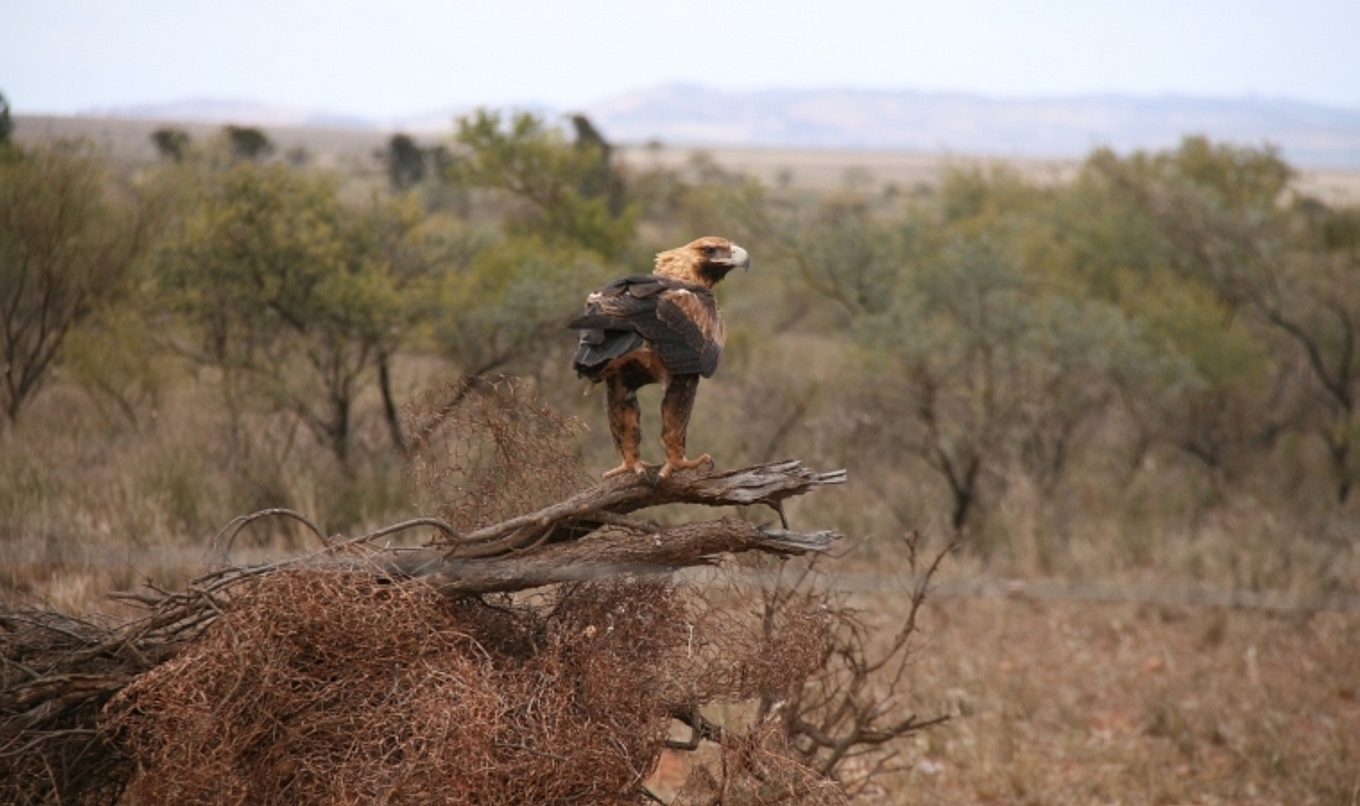Wedge-tailed eagles are nature’s pest control
With the South Australian lambing season underway, it is timely to remind land managers about some of the factors related to lamb mortality.

Natural Resources Northern and Yorke Landscapes Ranger Wayne Mitchell said that the protected wedge-tailed eagle (Aquila audax) is often unfairly blamed for lamb deaths.
“Research has shown the wedge-tailed eagle effect on healthy lamb survival is minimal, instead preferring to prey on sick, dying or dead animals,” Mr Mitchell said.
“Wedge-tailed eagles provide great benefits to farmers and the landscape by helping to control pest animals and dispose of dead animals, including roadkill, through their scavenging nature.”
“Eagles control rabbit numbers which can improve the availability of pasture for stock. They are also one of the few predators to kill feral cats, which subsequently helps control toxoplasmosis and its effects on sheep flocks. Farmers can play an important role in the future survival and protection of the wedge-tailed eagle, which is an iconic Australian species.”
Mr Mitchell said that it was important to look into the cause of death of lambs before laying blame on wedge-tailed eagles.
“Observing the wounds on the lamb and the presence of bruising or puncture marks will tell you whether it was killed by a predator or died of other causes,” he said. “If no bruising is apparent around the wound then it has occurred post-death and the animal has been scavenged.”
“The leading causes of death in lambs are mismothering, the lack of bonding between lamb and ewe, exposure to cold wet weather and illness due to poor stock condition.
“More significant impact can be caused by foxes, and wild dogs in some areas. A coordinated fox management program prior to lambing, continuing well into the lambing season, is the most successful approach to minimising predation and livestock losses.”
Mr Mitchell said that given their position at the top of the food chain, the presence of wedge-tailed eagles can be an indicator of good environmental health on a property.”
Wedge-tailed eagles are fully protected by the National Parks and Wildlife Act 1972. It is therefore illegal to kill, trap or poison them and carries a maximum penalty of $2,500 or imprisonment for 6 months.
For information about wedge-tailed eagles in agricultural areas, click here.

